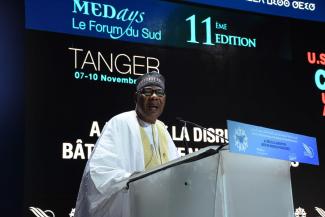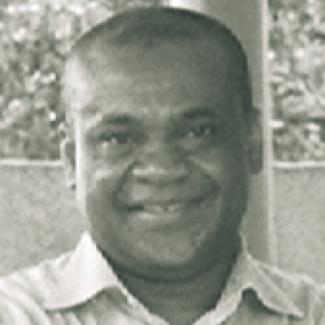Inadequate financial oversight
Outraged by court hearings

The hearings are taking place in Porto Novo, Benin’s administrative capital. A newly established court known as CRIET is hosting the lawsuit. CRIET stands for “Cour de répression des infractions économiques et du terrorisme” (court to repress business crimes and terrorism).
For several weeks now, the two key defendants, Guy Akplogan and Emile Tegbenou, have been detailing how they spent depositors’ savings until their organisation went bankrupt in 2010. The insolvency eventually triggered a government investigation which led to their incarceration.
A Ponzi scheme was at the core of the fraud. ICC Services claimed to collect and invest savings, but in truth the firm used fresh money from new clients to pay interest to previous ones. This kind of pyramid system works so long as the fraudsters manage to attract many new clients. The scale of the rip-off is only coming to light now. According to the International Monetary Fund, more than 155 billion CFA francs (the equivalent of about € 240 million) were illegally diverted.
In April 2010, rumours about ICC Service’s imminent insolvency became persistent. Akplogan and Tegbenou were arrested on several counts of fraud, illegal operation of a Ponzi scheme and other charges. Warrants were issued to search their houses and offices. Their property and assets, worth tens of billions of CFA francs, were seized. The authorities then moved on to sell the assets, in the hope of reimbursing depositors who felt cheated. The scandal got worse, however, because the government committee in charge of selling the assets could not indicate the exact amount of the money derived from the auctions.
The defrauded depositors are angry. Some of them say that, unless they get at least some of their money back, the trial will be a waste of time. On the other hand, many of them are now focusing their attention on Boni Yayi, who was Benin’s president from 2006 to 2016. Indeed, Akplogan and Tegbenou appeared to be good friends with him.
They interacted with the head of state in many ways, including prayer sessions at his house. Akplogan has bragged about visiting Boni Yayi in his office many times, and sometimes even appearing on government TV on such occasions. “There is no way he can say he didn’t know what ICC Services’ business was all about,” Akplogan said.
According to Tegbenou, ICC Services made many donations in cash and in kind to the president’s cousin, to his advisers, his ministers as well as to several civil-society organisations that were close to the ruling party. ICC Services thus gained national status and credibility.
So far, neither Akplogan, nor Tegbenou have pleaded guilty to any criminal charge. The case is confusing, with some of the defendants and witnesses making misleading statements. Some tend to say one thing in the morning, only to recant in the afternoon.
Nonetheless, it has become clear that the authorities should have intervened earlier. Apparently, international financial institutions and analysts told government agencies as early as 2007 that the gains ICC Services claimed to be making were impossible to achieve – in legal as well as mathematical terms. Their warnings fell on deaf ears.
Boni Yayi is an economist by profession and a former president of the West African Development Bank, so he must have a solid understanding of the financial sector. Nonetheless, his administration obviously failed to enforce the stringent rules that were spelled out by two important West African institutions:
- the Central Bank of West African States, which is in charge of managing the CFA franc that the region’s Francophone countries use, and
- the Inter-Governmental Action Group against Money Laundering in West Africa, a specialised agency of ECOWAS (the Economic Community of West African States).
Boni Yayi’s lawyers have accused the court of being more interested in implicating their client than compensating despoiled depositors. As a consequence, they have filed a charge against CRIET before another court. In the eyes of many Beninois, however, Boni Yayi has no excuse.
Karim Okanla is a media scholar and freelance writer from Benin.
karimokanla@yahoo.com







